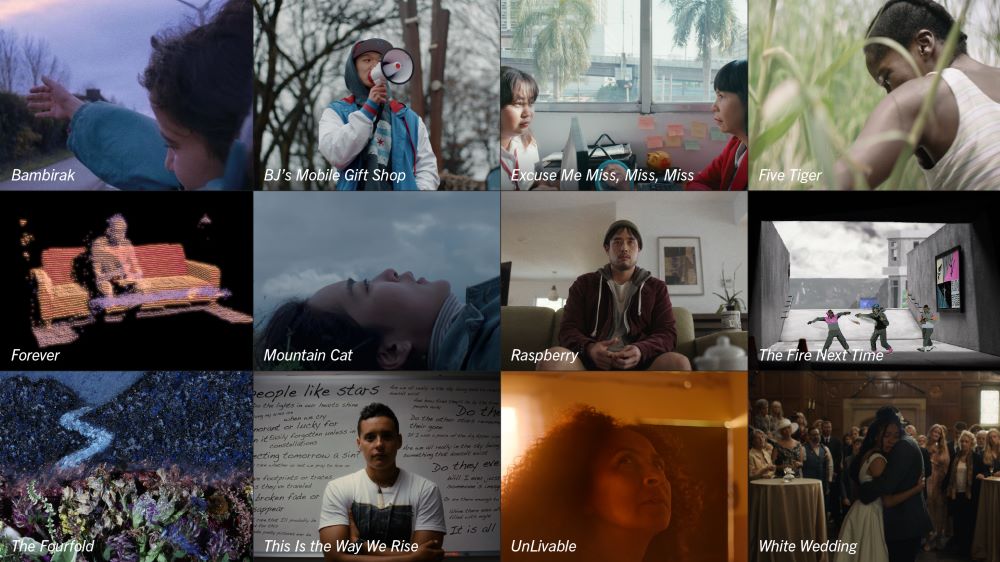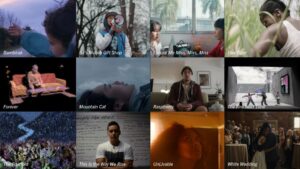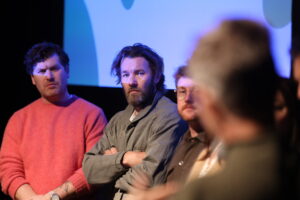By Vanessa Zimmer
Welcome to the final installment of our four-part series introducing the short films and their directors from this summer’s Sundance Film Festival Shorts Program — access to which is just one of the perks of joining a like-minded community of independent film-lovers.
All Members of the Sundance Institute get their own private screenings, from the comfort of their own homes, of these 12 short films from past Festivals. If you’re not a member and join by July 18, you can also receive access to this curated selection.
Last week, we covered the moving Raspberry and Mountain Cat, and the inspiring short documentary on Jamaica Heolimeleikalani Osorio, This Is the Way We Rise. (Click here to learn more.) The week before, we introduced the animated films The Fire Next Time and The Fourfold, as well as the live-action Five Tiger. (Click here if you want to review that installment.) The first blog revealed the 2021 Short Film Jury Award winner Bambirak, as well as the charming BJ’s Mobile Gift Shop and the alarming Excuse Me, Miss, Miss Miss. (Click here if you missed that blog or want to review it.)
Today, we wind up the series with looks at the diverse Unliveable, White Wedding, and Forever.
The Sundance Film Festival Shorts Program, presented by XRM Media, allows Members online access to watch the entire collection.
And that’s not the only benefit of joining the Sundance family. Membership also offers early access to Sundance Film Festival tickets, discounts on merchandise, and more ways to stay connected with other Sundance-supported artists throughout the year.
Read on to learn about three more films in the collection.
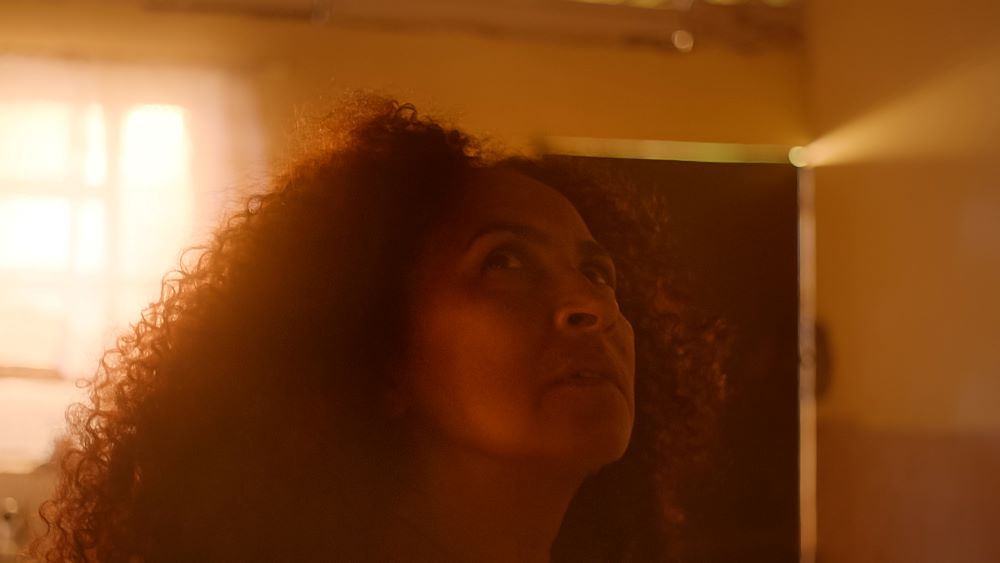
Unliveable, written and directed by Enock Carvalho and Matheus Farias
“The story narrated in Unliveable,” says director Enock Carvalho. “arose from the surge of violence that currently ravages Brazil, the country with the highest homicide rates of trans people in the world.” But Carvalho and co-director Matheus Farias wanted to tell a story with a happier ending.
With their 20-minute film Unliveable, they have succeeded. “It is not unusual to hear stories of smiles and feelings of [renewed] hope at the film’s screening,” says Farias.
That’s the prerogative of cinema, adds Carvalho: “Through cinema and through the power that film genre offers us… [we could] tell a story of a character whose outcome is different than expected.”
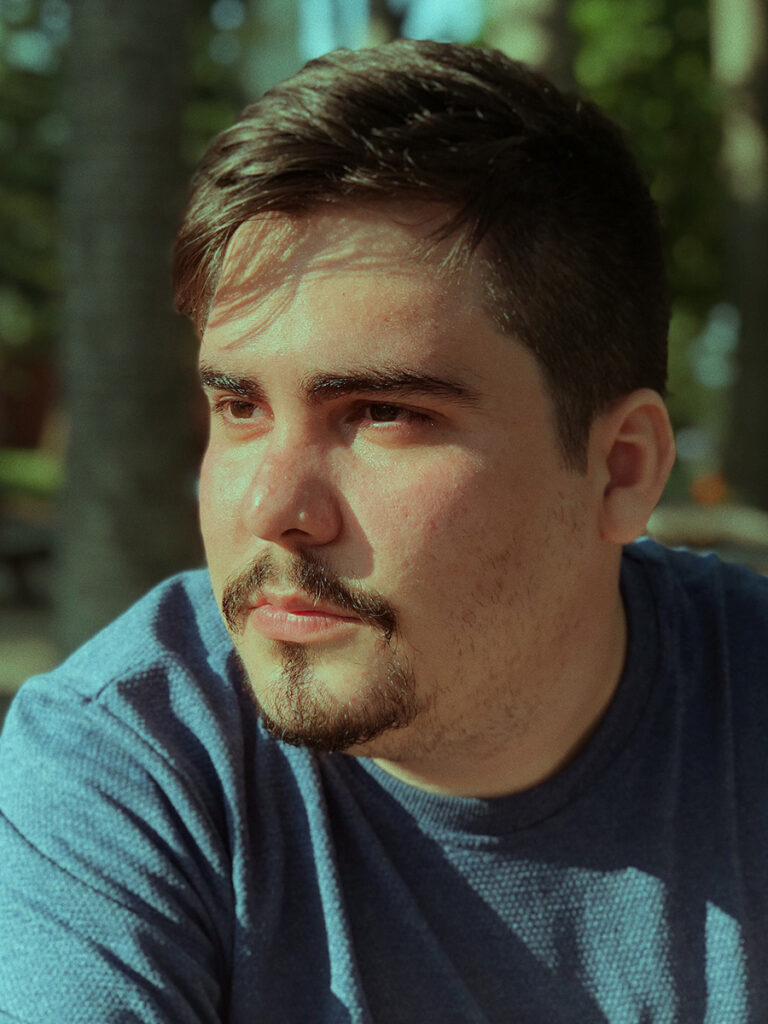
The film weaves a science fiction element into scenes of everyday life in a mountain city in northeast Brazil — as Marilene, played by well-known Brazilian actress Luciana Souza, goes door to door, to the police, even to the morgue, searching for her 25-year-old missing transgender daughter, Roberta. A television newscast in the short reports 892 people are missing in the country.
“I grew up watching horror and science fiction films from the United States,” explains Farias. “My repertoire is formed by this great wave of disaster and alien-invasion films, and I’ve always wanted to create something like this in Brazil, in my hometown, telling my own stories with my color and accent.”
The short has won prizes and inspired discussion in the country, the two say.
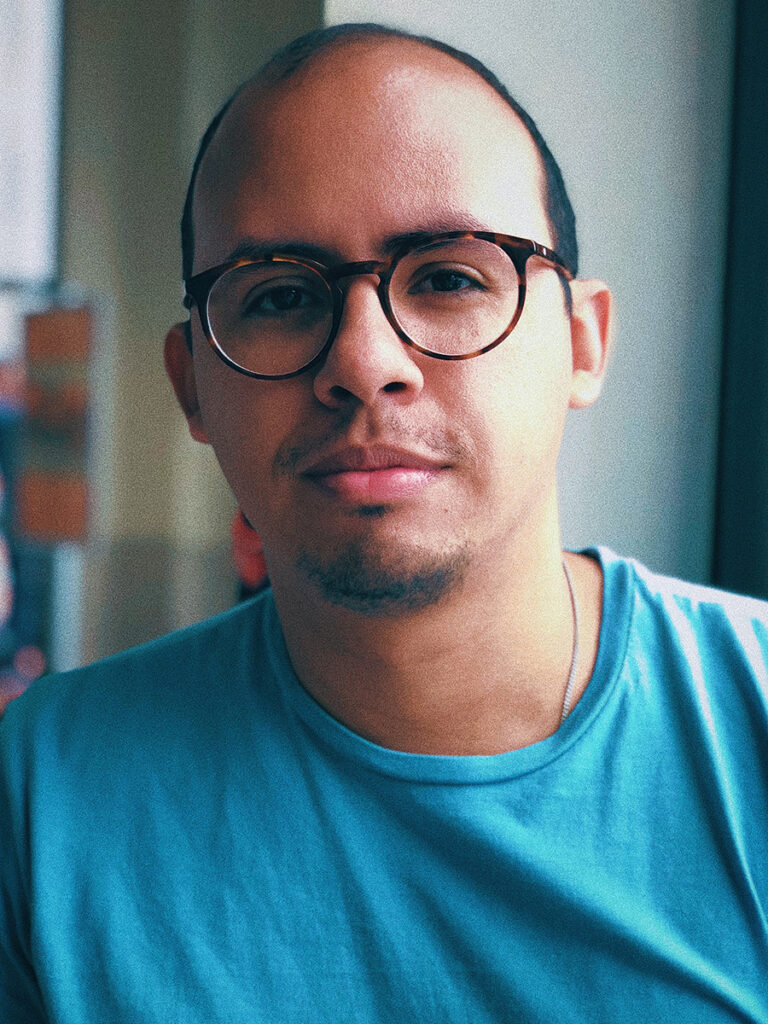
“Unliveable emerges from a context of grave crisis in Brazil, and it is obvious that those who suffer the most are the more vulnerable communities: women, Black, and LGBT people,” says Farias. “Upon this, we’ve tried to tell a story that takes place within this crisis of persecution, violence, and a constant state of vigilance — which has been growing during the past few years — in order to frame life as the biggest form of resistance.
“To be alive and to stay alive in Brazil is, without a shadow of a doubt, a political act.”
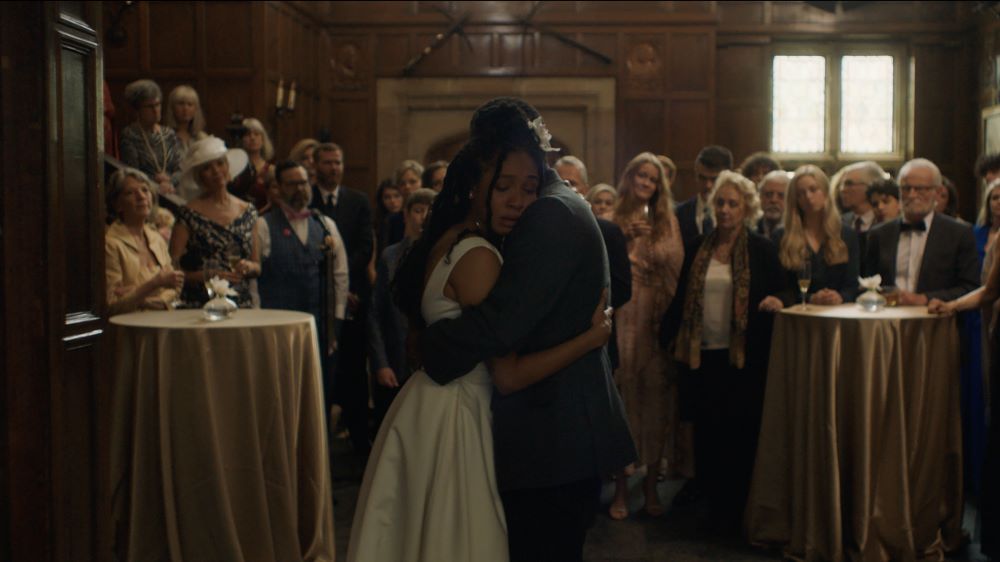
White Wedding, written and directed by Melody C. Roscher
Melody C. Roscher’s White Wedding is an uncomfortable but illuminating film about the nuptials of a biracial bride who confronts her estranged Black father when he turns out to be the bassist in the wedding band.
“This film started as a cruel experiment on myself,” explains Roscher. “I had anxieties about accidentally running into my estranged father (who is, by no coincidence, in a wedding band), so I forced myself to write the most uncomfortable version of this meeting that I could imagine — perhaps to be less afraid.”
The director planned out the entire edit of the film before shooting: “All of the directors I’ve worked with have had a vision for how the story braids together beforehand, and I see
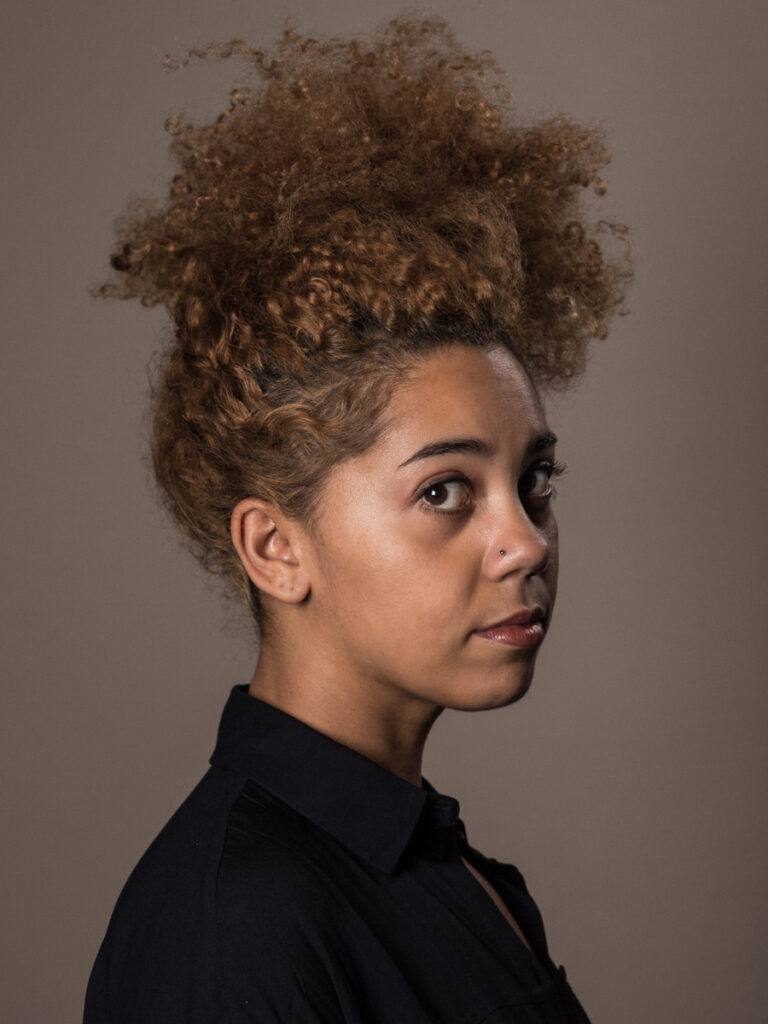
the strength in storytelling that comes from that conviction,” Roscher says. “Coverage feels like the backup plan, and that’s cool too, but it’s not what excites me about telling a visual story.”
Nabiyah Be portrays the bride, and Roscher cast family and friends as extras at the wedding reception.
For Roscher, a traditional bride “is expected to be tasteful, graceful, demure… which to me in the real world is constraining, nonsensical, and potentially dishonest.” She wrote the bride’s character outside that box, as a person who “could subvert the expectations people have placed on her.”
What should the audience feel after the 10-minute film? “I want the viewer to feel emotionally vulnerable, a bit gutted, but also empowered. Needing a parent and needing their love is as basic as it gets,” Roscher says.
“I think a lot of people deny the effect the absence of a parent has had on their lives, even if it’s just an emotional absence. If the film encourages someone to reflect on their own relationships in that way, perhaps as a child or as a parent or as both, I’d be thrilled.”
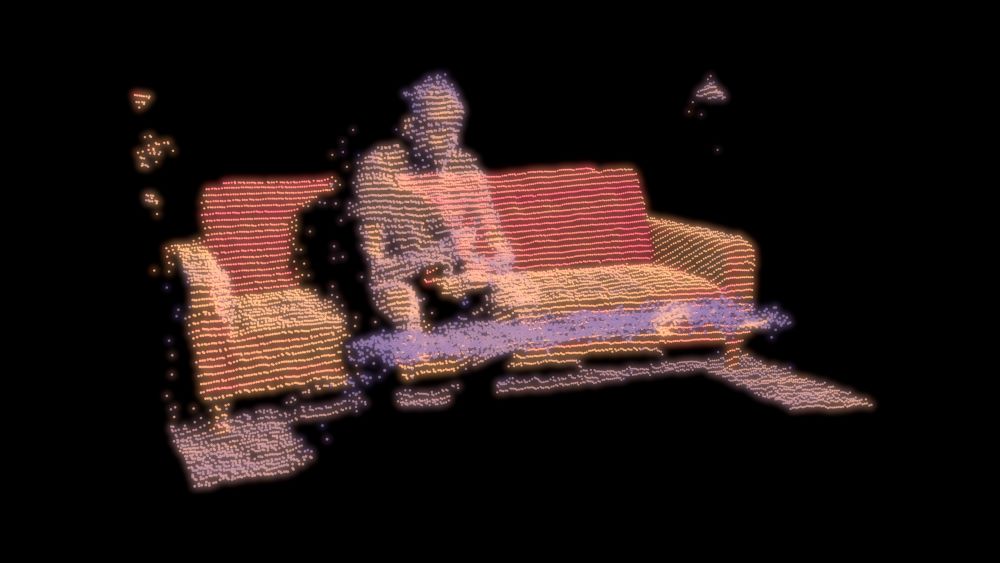
Forever, written and directed by Mitch McGlocklin
If artificial intelligence appeared on camera, it very well might look like Mitch McGlocklin’s short film Forever — which is appropriate considering that the subject of Forever involves AI.
A man named Mitch takes a phone call from a perky representative of a life insurance company, cheerfully informing him he has been denied life insurance because they’ve run all of his data through their AI system and he’s too risky. The experience launches Mitch into a fit of introspection for the rest of the seven-minute film. All the while, reddish, blue-ish, and white-ish dots in black space constantly rearrange to depict human figures, couches, and the like.
“I see AI as not really opinion,” he says. “It
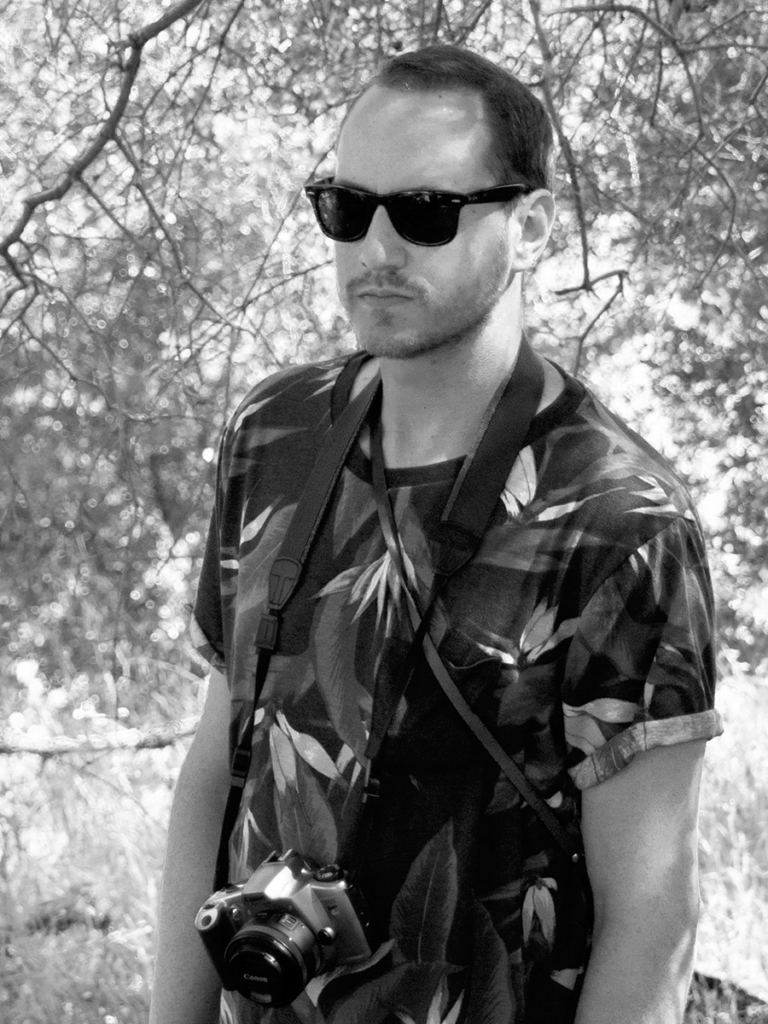
seems like truth.” Poor Mitch understandably assumes he’s going to die, which leads him to examine his life, his depression, and his alcohol use. The result of that self-exploration may be surprising.
Mitch’s voice is McGlocklin’s own. In a Meet the Artist video at the 2021 Sundance Film Festival, McGlocklin confirmed the film was based on his own experience. To film, he made use of LiDAR technology, which was developed for self-driving cars to perceive their surroundings.
The ghostly effect encourages viewers to place themselves in the same situation. It also, says McGlocklin in the video, mirrors the idea that these digital facsimiles are not exact, like a camera, but actually contain inaccuracies. As a result, according to McGlocklin’s website: “In both story and style, Forever explores the boundary of advanced technology and the human experience.”





